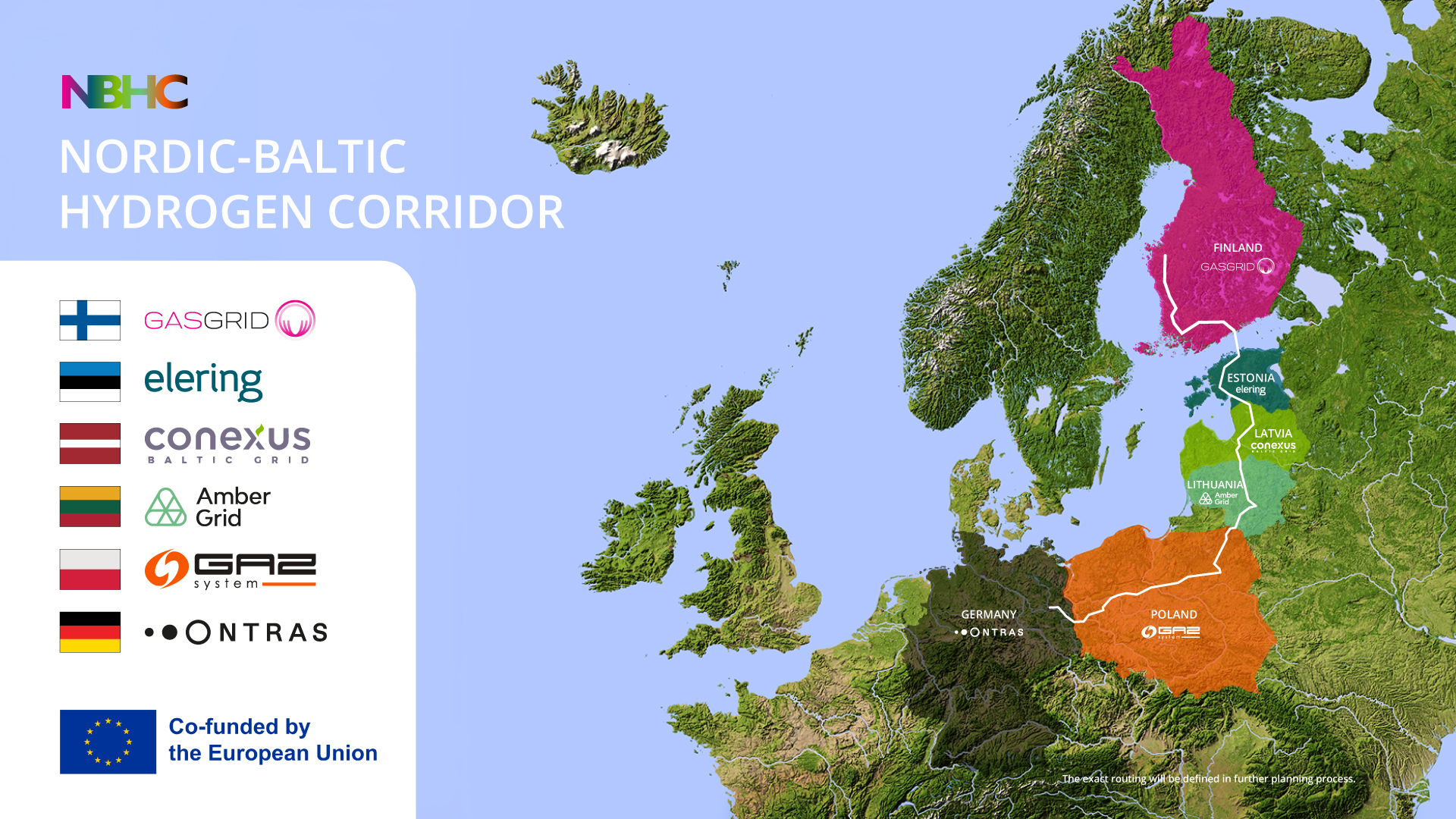
The project promoters of the Nordic Baltic Hydrogen Corridor (NBHC) Finland’s Gasgrid vetyverkot Oy, Estonia’s Elering, Latvia’s Conexus Baltic Grid, Lithuania’s Amber Grid, Poland’s GAZ-SYSTEM, Germany’s ONTRAS Gastransport and the European Climate, Infrastructure and Environment Executive Agency (CINEA) signed a grant agreement for the European Union (EU) financial support to the NBHC.
The grant agreement was signed on 1st of July 2025 by the countries developing the Nordic-Baltic Hydrogen Corridor project and the European Climate, Infrastructure and Environment Executive Agency (CINEA).
The collaboration reflects a shared commitment to building a resilient and sustainable energy future across the Baltic Sea region. The Corridor aims to support the development of clean hydrogen markets and integrate them into Europe’s future energy system.
The maximum grant amount of €6.8 million will support the NBHC feasibility phase. The co-financing from the Connecting Europe Facility (CEF) for cross-border energy infrastructure projects under the Trans-European Networks for Energy (TEN-E) will allow NBHC project partners to conduct in-depth feasibility studies that examine the technical, economic, regulatory and environmental aspects of building a large-scale hydrogen pipeline network in the Baltic Sea region.
“The NBHC project will establish a robust hydrogen infrastructure that strengthens energy security, enables an interconnected European market, and fosters inland clean energy production to decarbonize industry. Together with our partners in the BEMIP framework, we have delivered value-generating results over the past 15 years — natural gas infrastructure projects that integrated the Baltic States and Finland into the common EU energy market and ensured security and interoperability. The NBHC will require consistent effort and strategic patience. While the task is challenging, we can draw confidence from our strong track record of collaboration — this vital CEF funding will foster project implementation and bring us to the tangible results.” - said Nemunas Biknius, head of the Lithuanian gas transmission system operator Amber Grid.
The NBHC represents a significant step towards building the European hydrogen backbone, a strategic vision for connecting hydrogen production and consumption across the continent. By supporting renewable hydrogen transmission, the corridor will enhance energy security, and accelerate Europe’s transition to a decarbonised economy.
The feasibility study phase is expected to be completed in the 1st quarter of 2027 and it will lay the groundwork for subsequent project development phases. NBHC commissioning is expected around 2033’s.
As the feasibility phase gets underway, stakeholders across the public and private sectors will be invited to contribute to the process, ensuring that the Project aligns with local needs, environmental standards, and long-term strategic goals.